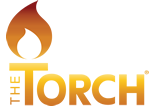You may be surprised to learn that the U.S. is becoming a nation of single people. Whether unmarried, divorced, or widowed, more and more Americans are living alone.
Single is the new married.
In this interesting article Solo nation: American consumers stay single, Eric Klineberg says “Only 51% of adults today are married, according to census data. And 28% of all households now consist of just one person – the highest level in U.S. history.”
Since the baby boom of the 1950s, one of the greatest social changes we’ve experienced is the rise of single occupancy residences. Cities like Atlanta, Washington D.C., and Seattle have more than 40% of households with only one occupant. In Manhattan, that figure is nearly 50%. Fifty percent! If you think that’s high, Stockholm chimes in with an astonishing 60% of single occupancy residences. Eric also shares that these sharp increases in single occupancy residences only happen when there are sufficient amounts of both wealth and comfort.
With the traditional perceptions of what it means to be single and living alone drastically changing since World War II it’s no wonder that today’s singles are becoming better prepared for unexpected emergencies. Just like the famous pay for their privacy, singles are happily paying a premium to have their own space. Today, smart and savvy singles know that living solo requires proactive planning.
Here are the 3 things successful singles need more than their married friends and family:
1. Powers of Attorney
Smart singles have formally named people they trust to make medical and financial decisions for them if they become ill or disabled. They have a healthcare power of attorney AND a financial power of attorney because when you live alone, it’s not immediately obvious who you would want to make decisions for you if it’s not already in writing.
It’s important to know that most states require court approval for anyone, even family members, to be your advocate in an emergency.
Naming a healthcare power of attorney AND a financial power of attorney is very important. If you are single you should make it a priority to find an estate attorney. Now, if you don’t have the time or money, you can easily create a very simple document using Legalzoom for about $xx
2. Disability Insurance
As a single person, do you know what will happen if you get sick and can’t work? Who will pay your living expenses?
We spoke with Kim Butler of Partners for Prosperity and she shared that “Unless a single person can afford to retire, a strong disability insurance program is a vital support item. With only one source of income in the household, any disruption could be devastating – and a worker’s compensation program is not enough; singles must make comprehensive disability coverage a priority.” Kim also suggests a checklist for singles with assets in her article Singles and Money: Flying Solo Financially.
3. Well-informed Support Network
It’s no secret that a well-informed support network is a firm foundation for married and single people alike. If you are single there are a few questions I want you to answer:
Who do you put down as your emergency contact?
Whoever is your emergency contact (family, friend or advisor) do they have all the information they would need to help you in an emergency?
Do they even know you named them as an emergency contact?
Be sure to educate your support network. They should be able to access your home, know your primary care doctor’s name, and have instructions on how to care for children, pets, and pay bills in an emergency. The Torch makes this process fast, safe and easy.
—
There are so many people in our lives, that it’s sometimes hard to know what information we should share and with whom.
When you pass your Torch, remember that whomever you choose doesn’t need to know everything, they just need to know where to find essential information when they need it. The Torch is designed not to share any confidential or personal details, only high level instructions on who to call, where to look, and what to do in an emergency.


